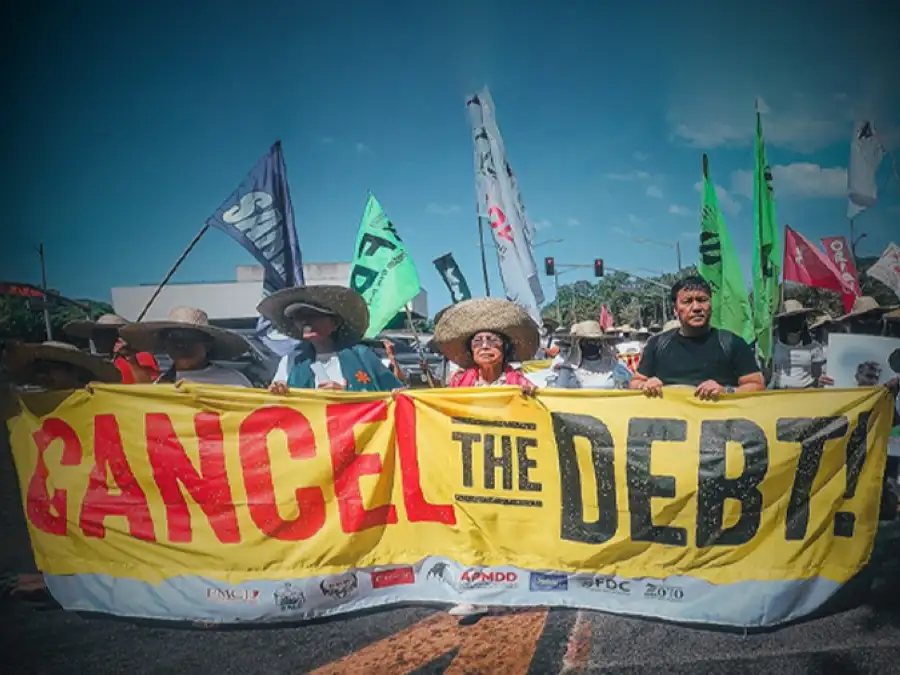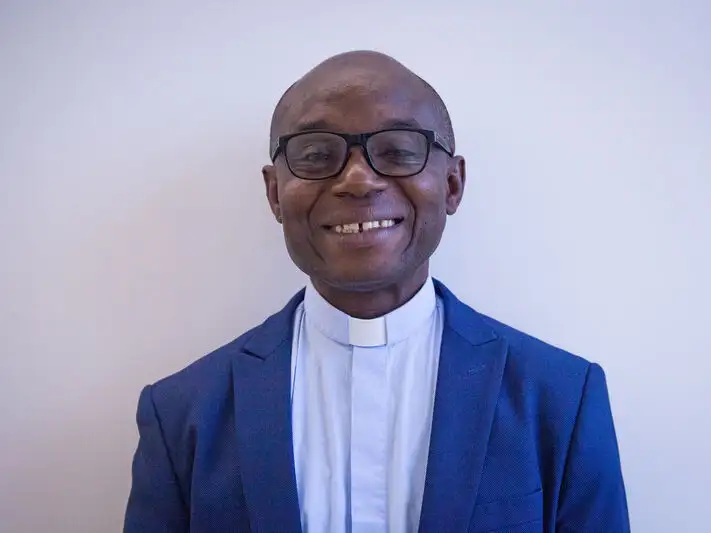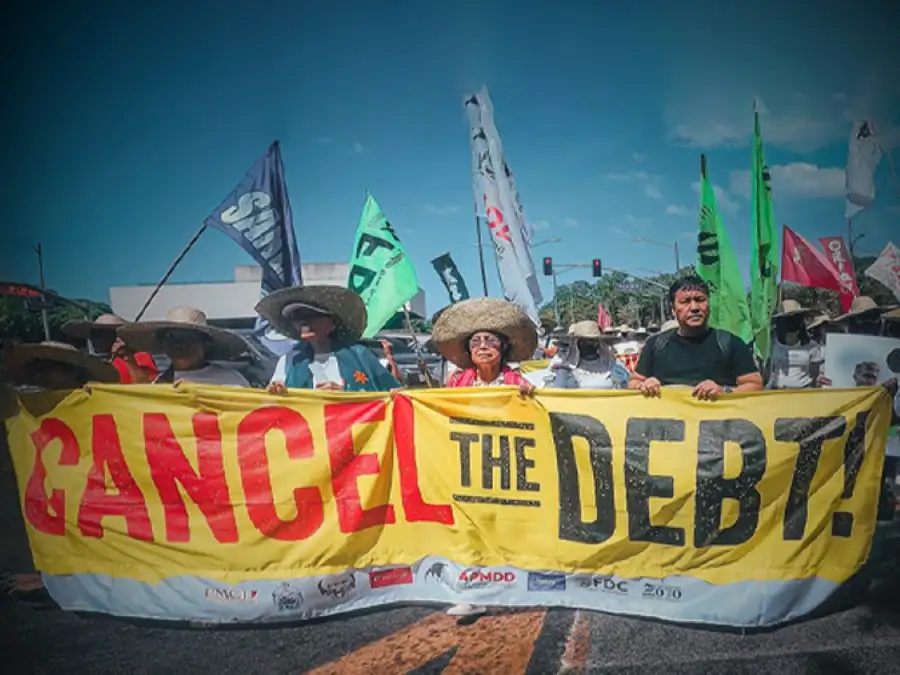Low-income countries are in the midst of the worst debt crisis in history.
A groundbreaking new report by world-leading economists calls for urgent action and systemic reforms to tackle the escalating debt and development crises affecting billions worldwide.
Involved over 30 world-leading economists
Appointed by Pope Francis as key initiative for the Jubilee Year 2025
Led by Nobel laureate Joseph Stiglitz and former Minister of the Economy of Argentina Martín Guzmán
'The Jubilee Report: A Blueprint for Tackling the Debt and Development Crises and Creating the Financial Foundations for a Sustainable People-Centered Global Economy' is launched today (Friday 20 June) at the Vatican. Authored by Pope Francis’ Jubilee Commission — a group of over 30 leading global experts led by Nobel laureate Joseph Stiglitz and the former Minister of the Economy of Argentina, Martín Guzmán. It calls for urgent relief, restructuring and reform to make the international financial system fairer, more just and more aligned with human dignity.
The Jubilee Year in the Catholic Church focuses specifically on debt, forgiveness, and tackling injustice and inequality.
The report follows Pope Francis’ repeated calls for global debt relief, being carried forward by Pope Leo XIV, and brings together for the first time a combination of sound economic expertise with the moral responsibility to act. It powerfully illustrates why the debt crisis plaguing our global financial system is also fuelling a development crisis.
Fifty-four developing countries now spend 10% or more of their tax revenues just on interest payments. Across the developing world, average interest burdens have nearly doubled in the past decade - diverting resources away from essential investments in health, education, infrastructure and climate resilience, and depriving millions of life-saving care, nutrition and employment.
This does not have to be the case: solutions exist that are both economically sound and beneficial to all.
A key initiative of this Jubilee Year in the Catholic Church, the report presents a moral and practical vision for the entire world: that global finance should serve people and the planet —not punish the poor to protect profits.
As global market uncertainty grows and refinancing options diminish for debt-distressed nations, we have an opportunity to chart a bold and practical path forward, arguing that - through shared responsibility - we can avoid a lost decade for development and climate action, and instead support economic recovery and long-term development.
Recommendations in the report include
Ways to fix the current crisis:
Extend COVID-era debt relief initiatives, with the participation of profitable private lenders.
Stop bailing out private lenders with public money, to encourage them to stop lending recklessly.
Offer bridging loans and other finance to support countries in crisis in the short-term, as has been done before.
Steps to prevent a debt crisis in the future:
Create a bankruptcy process for countries in debt crisis – just like the bankruptcy processes that exist to private companies facing debt distress.
End the bailouts for banks and change English law, which allows and encourages reckless lending and borrowing ‘bad’ deals (removing bailouts will help both sides consider the consequences).
Prioritise the quality rather than quantity of loans, focusing on long-term, stable lending for development – not expensive and risky lending for short-term political and financial gain. Redesign loan contracts to increase resilience and encourage long-term growth.
Pope Leo XIV declared at his inauguration:
“In this our time, we still see too much discord, too many wounds caused by hatred, violence, prejudice, the fear of difference, and an economic paradigm that exploits the Earth’s resources and marginalises the poorest.” (18 May 2025, “Homily at Inauguration Mass”)
The report’s findings will be discussed at the 4th International Conference on Financing for Development in Seville, Spain, from 30 June-3 July, as well as at key global gatherings including the United Nations General Assembly in New York City in September and the G20 Summit in Johannesburg, South Africa, in November.
Read CAFOD Director Christine Allen's statement on the report
Quotes from report leaders
Nobel laureate Joseph Stiglitz said:
“There is growing consensus among experts that the current debt system serves financial markets, not people. This threatens to condemn entire nations to a lost decade — or worse. Now is the time for responsible action.”
Minister of the Economy for Argentina (2019-2022) Martín Guzmán said:
“The debt crisis is crowding out investments in health, education and climate, and is making the economic and social situation dramatic in many developing economies. Pope Francis’ call was a moral act of timely leadership. In this Jubilee year, a coalition of the willing must act to tackle the debt and development crises or else inequality of opportunity will rise and instability will spiral with worldwide medium-term destabilizing consequences.”
Notes to editors
For more information or interview requests, please contact:
Rosalind Mayfield, CAFOD Media Officer
CAFOD’s out-of-hours media line
In Rome:
Christine Allen, CAFOD Director and CEO
In London or elsewhere:
Pablo Soriano Mena, CAFOD Policy Lead
Maria Finnerty, CAFOD Lead Economist
Neil Thorns, CAFOD Director of Advocacy & Communications
For interviews with Commissioners directly, email Initiative for Policy Dialogue: Ipd@gsb.columbia.edu
The Jubilee Commission was appointed by Pope Francis in February 2025 to mark the Jubilee year 2025, when the Catholic church focuses on forgiveness of debts and tackling injustice and inequality.
Pope Francis made debt a central focus of his papacy, recognizing that the current international financial system is ill-equipped to meet today’s global challenges and urgently needs reform. In June 2024, he called for an international mechanism for sovereign debt restructuring, and encouraged financial leaders to “follow an international code of conduct with ethical standards that can guide dialogue between parties”.
Twenty-five years ago in Jubilee 2000, over $100 billion in international debt was cancelled but a lack of structural reform, combined with recent world events, resulted in systemic vulnerabilities that are now undermining hard-won gains. The time for new Jubilee action is now.
Learn more about the debt crisis
Hear from Fr Charlie Chilufya, a priest based in Kenya and Director of JENA (Jesuit Justice and Ecology Network, Africa) who is an expert on the debt crisis and on the human suffering that this is causing in Kenya.
"Shouldn't all debts just be repaid?" Read the answer to this and other questions about the new global debt crisis.
This report outlines why, following the historic success of the Jubilee 2000 debt campaign, the world once again faces an acute global debt crisis in 2025.





